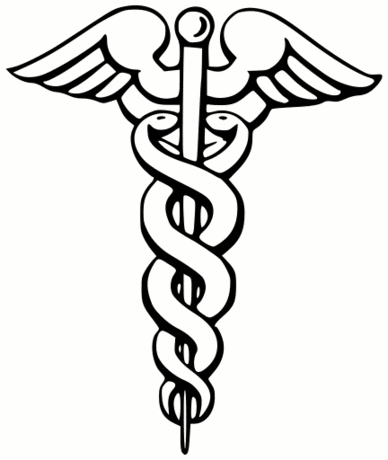Finding Reliable Health Information on The Internet

The Internet is an amazing resource for finding information. When I broke my ankle I spent hours, literally, researching my particular fracture and the typical treatments and course of healing that I could expect. Overall my research made me feel more empowered and gave me ideas about how to care for myself well to improve my healing. Unfortunately some reading left me feeling anxious and unhappy; I was worried about my future health and prospects. How could I know whom to trust?
How do you find safe, reliable health information on the Internet? This is an important question. Most of the patients I see these days are like me; they proactively look for health information on the Internet. As a physician I think this is wonderful. When a patient comes into my office prepared with information and questions I immediately know that this is a person who takes their health seriously and who will be conscientious in caring for himself or herself. I also know this person is curious, intelligent and independent which are traits I admire and respect. However there are some websites that offer misleading information, either through deliberate intent to deceive or because the websites are offering a purely personal perspective that may or may not apply to other people.
Some simple questions can help you evaluate the information on a website. First, is there any indication that the person or company publishing the site has a financial incentive for you to make a particular health decision? If a website is trying to sell you something at the same time that it purports to be educating you go over that information with extra care. Sometimes it may not be obvious that the website is sponsored by a company with a product to sell so use the other criteria to evaluate information as well.

Second, is the website in line with most other websites about your particular health concern? A website that says something that is very different from most other resources should be taken with a grain of salt; look for consensus among different resources. Be very cautious about anything that sounds “too good to be true;” I know it sounds cynical but if only one website is promising a miracle it probably is too good to be true. I have seen individuals and families deeply harmed by this kind of false promise, so I offer a caution.
Third, rely primarily on major, trusted health information sources for your initial basic information. There is an online certification available from the organization Health on the Net Foundation, which is a non-governmental organization that certifies websites as providing reliable and trustworthy health information. You can find their badge on websites that have achieved certification. That doesn’t mean you shouldn’t look at smaller, non-certified avenues of information. It just means that smaller, more personal sites, like this hub as an example, should be cross checked against other sources of information. These smaller venues can be great for getting a personal touch with the information, getting information about ways to cope with various aspects of a condition, getting support from a community that can really empathize with your struggles, and sometimes for getting good information about conditions or even treatment side effects that aren’t common. However if you are finding contradictory information the major sites are likely to be drawing from broad experience with multiple patients over long periods of time and are more likely to apply to you than one person’s personal experience.
Fourth, bring the information you’ve found to your doctor’s visit to discuss it. Since the time you are given with the doctor may be limited, try to consolidate the information and write down the areas where you have questions. These could be areas of contradiction (you found a recommendation for one thing but your doctor suggested another) or areas you would like clarification about. Many (I hope most) doctors will appreciate your responsible, proactive stance towards your own care and will happily collaborate with you. Remember that as a patient you have both the right and the responsibility to be well informed about your health and to make reasonable, thoughtful decisions about your care.
I have listed below some of the websites I most often turn to for my own health information. These are also the sites I recommend as starter sites for patients who want to read more about their conditions and recommended treatments. Used properly, the Internet has the potential to significantly improve your ability to manage and preserve your own health by empowering you with knowledge.
Some Trusted Internet Health Resources
- Mayo Clinic medical information and tools for healthy living - MayoClinic.com
Mayo Clinic offers award-winning medical and health information and tools for healthy living. - WebMD - Better information. Better health.
The leading source for trustworthy and timely health and medical news and information. Providing credible health information, supportive community, and educational services by blending award-winning expertise in content, community services, expert co - Health On the Net Foundation
HON's mission is to guide Internet users to reliable understandable accessible and trustworthy sources of medical and health information. HON specialized Search engine and directory help Internet Users and Health Professionals to find the most reliab - Health Information - National Institutes of Health (NIH)
Official website of the National Institutes of Health (NIH). NIH is one of the world's foremost medical research centers. An agency of the U.S. Department of Health and Human Services, the NIH is the Federal focal point for health research. The NIH w - Centers for Disease Control and Prevention
CDC Centers for Disease Control and Prevention - Your Online Source for Credible Health Information - Comprehensive Cancer Information - National Cancer Institute
Accurate, up-to-date, comprehensive cancer information from the U.S. government's principal agency for cancer research.








